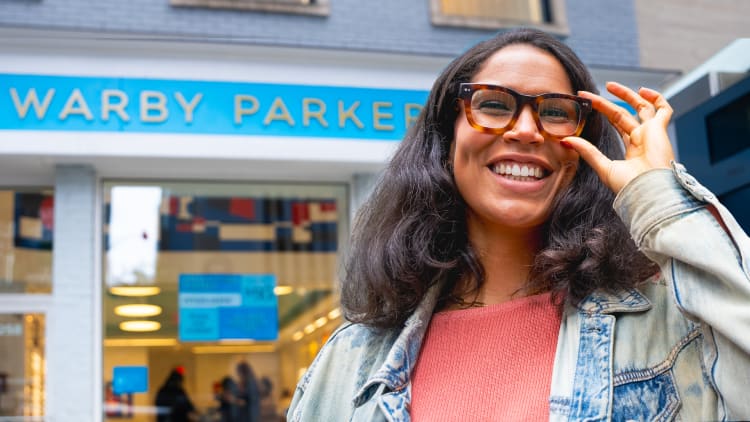3 money steps you can take today to feel rich, according to CFPs
If you’re chasing the $1 million mark to feel like you’ve reached it, it might be time to think again. Only one in three million people feel wealthy, according to a 2024 Northwestern Mutual survey.
Fortunately, feeling rich has nothing to do with the money in your bank account and how you feel about the money you already have.
“Wealth is measured time,” says Paul Morrone, a certified financial planner in North Haven, Connecticut. He says that depending on lifestyle, specific spending needs and sources of income, it can vary from person to person. In short, your ability to feel rich depends on “what are your experiences and your feelings about money.”
That’s good news because there is a way for anyone, on any budget, to increase their financial confidence.
Here are three ways to feel rich, from financial planners — even if you have less than $1 million in the bank.
1. Embrace your financial journey
While $1 million may seem like a reasonable number, finding a defined and achievable savings goal is the most important step you can take to feel rich. says Rachel Elson, a CFP based in San Francisco, California.
“The number of dollars floating around is not the answer. Understanding your needs and your goals and your road map is the answer,” Elson says.
This includes letting go of a known amount like $1 million and accepting your financial journey, he says. Goals like building an emergency fund or improving your credit score, when achieved, can help you feel wealthy without building a lot of money.
That’s because personal wealth and savings goals — when aligned with your unique goals — offer a surefire way to make your success attainable. This method reframes your thinking to maximize what you can do with your money, rather than how much money you can accumulate.
Just trying to accumulate as much money as possible without a plan can be dangerous by making you feel less important than your wealthier peers. “It’s like being an athlete,” says Morrone. “There’s always someone faster than you, stronger than you. There will always be someone who has more.”
2. Make the most of your time
In your 20s and 30s, you may not have a lot of money. However, you have the most valuable asset: time. If you start saving early and invest regularly, time and compound interest can turn a small amount into a large sum..
In other words, you don’t need $1 million today to feel rich – just a plan to grow your money over time.
This is not something you should think about, says Elson. He recommends building your own savings strategy with pre-set 401(k) contributions or by setting up a savings account that you can’t touch.
“Anything you can do to set up a process and system that you don’t have to think about will help,” he says.
Although it may seem like there isn’t a lot of money in your budget to set aside for the future, even small donations can have a big impact in the long run.
“Everything you do for yourself when you’re young will set you in good stead down the road,” says Elson. “That flexibility will give you that.” it’s the most important part.”
3. Work with a financial professional
Having $1 million means nothing if you don’t know what to do with it. However, in any financial situation, if you understand exactly how much you have and what your options are, you may find that your money can go much further than you think.
“That’s where budgeting comes into play,” says Elson. A mentor will often walk you through what you have, what strategies you have and how things might turn out over time. Together, he says, you can figure out how to best distribute your resources.
The biggest benefit financial planning can provide is keeping you on track and focused on your financial goals, Morrone says. Because financial benefits often monitor your individual plan, you can feel confident that you have certain levels of your budget, even if everything in your life does not go as planned. so.
Basically, financial planning is a way to make your money work better toward your goals, Elson says, whether it’s buying a house, saving for retirement or feeling less anxious about money. “Understanding what your road map is really helps,” he says.
Even if your goals seem far away, you embrace them Small financial rewards along the way can help you feel rich, Morrone says. These wins can be as big as improving your credit score or as small as making a monthly car payment.
Celebrating these victories on your way to bigger goals is much easier to make you feel rich than “looking at a big number in the bank,” he says.
Want to earn more money at work? Take CNBC’s new online course How to Negotiate a Higher Salary. Professional instructors will teach you the skills you need to earn a bigger salary, including how to prepare and build your confidence, what to do and say, and how of making a counter request. Pre-register now and use coupon code EARLYBIRD for an introductory 50% discount through Nov. 26, 2024.
Also, sign up for the CNBC Make It newsletter to find tips and tricks for success in work, money and life.

#money #steps #today #feel #rich #CFPs